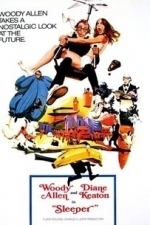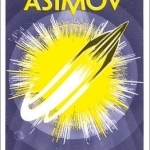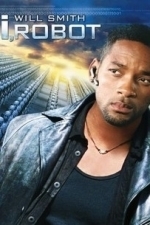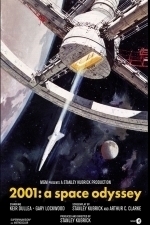Search
Search results
Awix (3310 KP) rated Sleeper (1973) in Movies
Mar 11, 2018 (Updated Mar 11, 2018)
One of the best of Woody Allen's early pure comedies. Allen (basically playing the same character as always) wakes up in 2173 and is recruited by rebels seeking to bring down an oppressive totalitarian regime.
Simply a very funny film; a much more visual comedy than you would expect from Allen - I have seen suggestions that the whole thing is intended as a homage to Benny Hill - but there are the usual one-liners (also a few slightly dodgy stereotype-based jokes). Very much a spoof of late 60s/early 70s SF movies like THX-1138 and 2001; the SF content is surprisingly solid courtesy of uncredited script consultancy from Isaac Asimov (this may well be the first SF movie to deal with the concept of cloning). Worth watching just for the sequence with the banana and the chicken.
Simply a very funny film; a much more visual comedy than you would expect from Allen - I have seen suggestions that the whole thing is intended as a homage to Benny Hill - but there are the usual one-liners (also a few slightly dodgy stereotype-based jokes). Very much a spoof of late 60s/early 70s SF movies like THX-1138 and 2001; the SF content is surprisingly solid courtesy of uncredited script consultancy from Isaac Asimov (this may well be the first SF movie to deal with the concept of cloning). Worth watching just for the sequence with the banana and the chicken.
Enyeh (71 KP) rated Foundation in Books
Sep 5, 2017
Asimov's Foundation series is a classic for a reason. His ability to construct a coherent political narrative across centuries, without sounding like a dry textbook from a parallel universe, is astounding. However, Asimov's talents lie in plot and narrative - not in writing style, dialogue, or characterization. He utilizes character interactions to describe most occurring events, but these interactions are simply not believable. You find yourself rolling your eyes, cringing away, even having to close the book for a moment to rid your mind of the image of Asimov as a greasy 15-year-old in his mom's basement, trying to write about human beings without ever interacting with them.
Sorry, Isaac. I'm sure that's not true of you.
All in all, the success of this book doesn't surprise me, but it was not easy to get through.
Sorry, Isaac. I'm sure that's not true of you.
All in all, the success of this book doesn't surprise me, but it was not easy to get through.
David McK (3705 KP) rated I, Robot (2004) in Movies
Oct 30, 2022
I think it was Isaac Asimov who came up with the 3 laws of Robotics, as follows:
1.A robot may not injure a human being or, through inaction, allow a human being to come to harm.
2. A robot must obey the orders given to it by human beings, except where such orders would conflict with the First Law.
3. A robot must protect its own existence as long as such protection does not conflict with the First or Second Laws.
That's the starting point for this movie, which sees Technophobic 2035 cop Del Spooner (Will Smith) convinced that a robot has just carried out a murder - something which, by those laws, should be impossible for it to do.
The film then takes in the concept of free will and consciousness, all - as an action thriller - wrapped up in a mystery and with a few helpings of what I'm going to call 'wham blam' action
Surprisingly enjoyable.
1.A robot may not injure a human being or, through inaction, allow a human being to come to harm.
2. A robot must obey the orders given to it by human beings, except where such orders would conflict with the First Law.
3. A robot must protect its own existence as long as such protection does not conflict with the First or Second Laws.
That's the starting point for this movie, which sees Technophobic 2035 cop Del Spooner (Will Smith) convinced that a robot has just carried out a murder - something which, by those laws, should be impossible for it to do.
The film then takes in the concept of free will and consciousness, all - as an action thriller - wrapped up in a mystery and with a few helpings of what I'm going to call 'wham blam' action
Surprisingly enjoyable.



